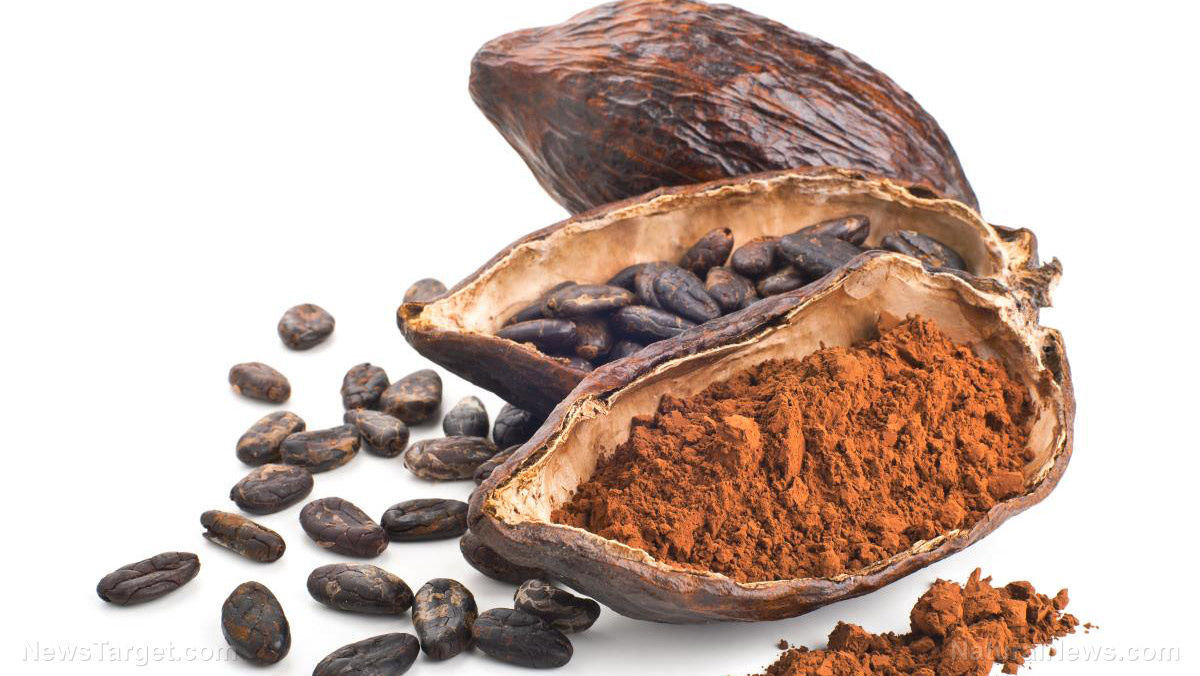DARK SECRETS: Your dark chocolate may contain lead and cadmium
Dark chocolate offers health benefits, but some brands are contaminated with heavy metals. Heavy metals can also harm brain development and result in lower IQ.
By HRS Editors
April 18, 2024
For people with a sweet tooth who are worried about their sugar intake, dark chocolate may seem like a healthier alternative to other sugary treats like cookies or milk chocolate.
After all, many studies have suggested that dark chocolate is rich in antioxidants that can help boost overall well-being.
Additionally, dark chocolate contains relatively low levels of sugar.
The National Confectioners Association has even reported that more than 50 percent of survey takers have "described dark chocolate as a 'better for you' candy."
But like other superfoods, not all kinds of dark chocolate are automatically good for you.
Research findings have revealed that some cocoa products like dark chocolate bars contain heavy metals like cadmium and lead which are linked to various health problems in both children and adults. (h/t to ConsumerReports.org)
Dark chocolate offers health benefits, but some brands are contaminated with heavy metals
The chocolate industry is aware of heavy metal contaminants in chocolate products and has been struggling to lower those levels.
To find out how much of a risk chocolates pose, Consumer Reports (CR) scientists measured the amount of heavy metals in 28 dark chocolate bars.
The experts said they detected cadmium and lead in all of them.
CR tested different brands, including smaller ones like Alter Eco, and more familiar ones such as Ghirardelli.
Out of the 28 tested chocolate bars, eating only one ounce per day of 23 of the products would put an adult over a level that public health authorities and CR’s experts warn could be harmful to at least one of those heavy metals.
Additionally, five of the tested chocolates were above those levels for both cadmium and lead. This is bad because consistent, long-term exposure to even small amounts of heavy metals can harm your health.
Tunde Akinleye, the CR food safety researcher who led the testing project, warned that the danger is greatest for pregnant women and young children because the metals can cause developmental problems.
Heavy metals can also harm brain development and result in lower IQ.
Akinleye warned that heavy metals may harm people regardless of age.
He added that frequent exposure to lead in adults may cause health issues such as:
Hypertension (high blood pressure)
Immune system suppression
Kidney damage
Nervous system problems
Reproductive issues
Mintel, a market research firm, has reported that while not everyone eats chocolate every day, 15 percent of people do.
And even though you don't eat chocolate frequently, exposure to lead and cadmium can still be a concern. These heavy metals can also be found in other foods, like carrots, spinach and sweet potatoes.
Small amounts of heavy metals from different sources can still add up to dangerous levels, which is why you need to limit exposure when you can.
Akinleye advised that despite the CR test results, you don't need to avoid chocolate forever. While most of the chocolate bars tested had concerning levels of lead, cadmium, or both, five of the tested products were relatively low in both heavy metals.
Akinleye said that this is proof that companies can make chocolates with lower amounts of heavy metals and that consumers can still find safer products to enjoy.
Worried about dark chocolate with heavy metals? Try Organic Cacao nibs
Determining the exact amount of dark chocolate that’s risky to eat is difficult because heavy metal levels can vary. At the same time, different people have different risk levels and chocolate isn't the only source of heavy metal exposure.
But experts say that by being mindful of the risks, you can still enjoy dark chocolate while minimizing the potential harms.
(Related: Cacao nibs: The ultimate superfood packed with antioxidants.)
Aside from choosing your dark chocolates wisely, you can also make changes to your shopping and eating habits so you can continue to eat chocolate safely.
For example, you can avoid brands with known high heavy metal content and opt for safer choices, like lab-verified organic cacao nibs from trusted sources.
The purest and rawest form of chocolate, cacao nibs are small pieces of crushed beans from the Theobroma cacao tree, which is native to Central and South America.
Unlike cocoa, which has been roasted and heavily processed, raw cacao is untreated and unprocessed.
This means that cacao offers the full, rich flavor of delectable dark chocolate with none of the added sugars, sweeteners, emulsifiers, flavorings, thickeners, preservatives, or other additives that are usually found in regular chocolate products.





